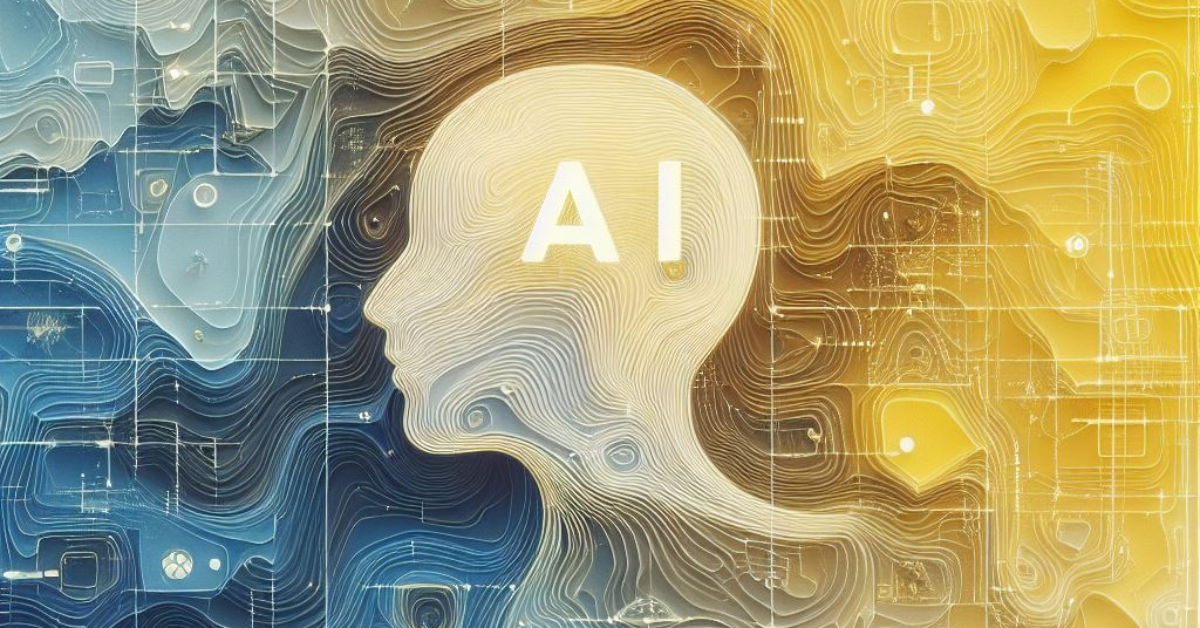“Unveiling Neurological Mysteries with AI: AI in Neurology”
October 25, 2023 | by insighttechdaily.com

The Rise of AI in Neurological Research
Artificial Intelligence (AI) has emerged as a groundbreaking tool in the field of neurological research, revolutionizing the way scientists study and understand the complexities of the human brain. By simulating human intelligence and computational abilities, AI has the potential to unlock new frontiers in neuroscience, accelerating the pace of discoveries and enhancing our understanding of neurological disorders.
One area where AI has shown tremendous promise is in the analysis of large datasets. Neurological research often involves processing vast amounts of complex data, ranging from genetic information to brain imaging scans. AI algorithms can efficiently handle and analyze these datasets, identifying patterns and correlations that may elude human researchers. This ability to extract meaningful insights from data is invaluable in identifying the underlying mechanisms of neurological disorders and developing targeted therapies.
Enhancing Diagnostic Accuracy: AI Applications in Neurology
AI applications have shown immense potential in enhancing diagnostic accuracy in the field of neurology. Through the use of machine learning algorithms, AI systems can analyze vast amounts of patient data with precision and speed, aiding healthcare professionals in making accurate diagnoses. This technology has the ability to detect patterns and markers that may be undetectable to the human eye, allowing for earlier and more accurate diagnoses of neurological disorders.
One of the key advantages of AI applications in neurology is their ability to handle complex and multifaceted data. Neurological conditions often present with a wide range of symptoms and manifestations, making diagnosis challenging for healthcare practitioners. AI systems can integrate various types of data, such as medical imaging, genetic information, and clinical records, and analyze them holistically to provide a comprehensive diagnostic assessment. By considering multiple variables simultaneously, AI applications can improve diagnostic accuracy and reduce the likelihood of misdiagnosis, ultimately leading to better patient outcomes.
Revolutionizing Treatment Approaches: AI Innovations in Neurological Care
The field of neurology has seen a remarkable transformation with the introduction and integration of artificial intelligence (AI) technologies. These innovative advancements have revolutionized treatment approaches and significantly improved neurological care. AI systems have the ability to analyze large quantities of data, identify patterns, and make accurate predictions, enabling healthcare professionals to develop personalized treatment plans for patients with neurological disorders.
One of the key contributions of AI in neurological care is its ability to assist in the diagnosis and management of conditions such as stroke, epilepsy, and Parkinson’s disease. Through the utilization of AI algorithms, healthcare providers can analyze patient data, including medical history, imaging results, and genetic information, to make more accurate and timely diagnoses. This not only saves valuable time but also ensures that patients receive appropriate treatment more efficiently. Moreover, AI-powered systems can continuously monitor patients’ symptoms and vital signs in real-time, providing healthcare professionals with valuable insights to optimize treatment approaches and improve patient outcomes.
Uncovering Early Markers: How AI is Improving Early Detection of Neurological Disorders
In the realm of neurological disorders, early detection is crucial for timely intervention and improved patient outcomes. However, diagnosing these conditions can be challenging, as symptoms may be subtle or overlap with other conditions. This is where artificial intelligence (AI) has emerged as a game-changer, revolutionizing the field of early detection in neurology.
AI utilizes advanced algorithms and machine learning techniques to analyze vast amounts of data, ranging from medical records and imaging scans to genetic profiles and lifestyle factors. By identifying patterns and correlations that may go unnoticed by human experts, AI systems can uncover early markers indicative of neurological disorders. This enables healthcare professionals to intervene at an early stage, providing targeted and personalized treatment plans to patients. Moreover, the use of AI in early detection not only saves valuable time but also reduces healthcare costs, as diseases can be identified before they progress to advanced stages requiring more extensive and expensive interventions. With AI’s ability to process and analyze data rapidly, the potential for early detection of neurological disorders is expanding, opening up new possibilities for improved patient care and outcomes.
Understanding Complex Brain Patterns: AI’s Role in Neuroimaging Analysis
AI has emerged as a game-changer in the field of neuroimaging analysis, revolutionizing our ability to understand complex brain patterns. By harnessing the power of machine learning algorithms, AI has the capability to analyze large amounts of neuroimaging data and detect intricate patterns that may be undetectable to the human eye. This has opened up new avenues for research and clinical practice, offering insights into the underlying mechanisms of neurological disorders and providing more accurate diagnoses.
One of the key advantages of AI in neuroimaging analysis is its ability to handle big data. Neuroimaging techniques generate vast amounts of data, which can be overwhelming for human experts to analyze. However, AI algorithms can process this data quickly and efficiently, extracting valuable information from multiple imaging modalities such as magnetic resonance imaging (MRI), positron emission tomography (PET), and functional MRI (fMRI). This allows researchers and clinicians to uncover subtle brain patterns that may indicate the presence of neurological disorders or help monitor the progression of a disease. With AI at their disposal, neuroimaging researchers are now able to delve deeper into the complex workings of the brain, paving the way for advancements in both diagnosis and treatment strategies for neurological conditions.
Personalized Medicine: How AI is Improving Treatment Plans for Neurological Patients
Advancements in artificial intelligence (AI) have opened up new possibilities in the field of personalized medicine for neurological patients. AI algorithms have the ability to analyze vast amounts of patient data, including genetic information, medical history, and treatment outcomes, to develop personalized treatment plans. By integrating AI into the healthcare system, neurologists are able to make more informed decisions and deliver targeted therapies that are tailored to the individual needs of each patient.
One of the key ways in which AI is improving treatment plans for neurological patients is through the identification of biomarkers. Biomarkers are molecular or cellular indicators of a disease or condition that can be measured in a patient’s blood, urine, or tissue samples. AI algorithms are trained to recognize patterns within these biomarkers and correlate them with specific neurological disorders. This allows neurologists to accurately diagnose and monitor the progression of diseases such as Alzheimer’s, Parkinson’s, and multiple sclerosis. By detecting these biomarkers at an early stage, AI can facilitate early intervention, potentially slowing down the progression of the disease and improving patient outcomes.
Bridging the Gap: AI’s Contribution to Neurological Rehabilitation
In the realm of neurological rehabilitation, artificial intelligence (AI) is proving to be a valuable tool for bridging the gap between traditional therapy methods and optimal patient outcomes. By harnessing the power of AI algorithms and machine learning, healthcare professionals are able to personalize rehabilitation plans and improve treatment efficiency for individuals with neurological disorders.
One key contribution of AI in neurological rehabilitation is its ability to gather and analyze large amounts of patient data. By considering various factors such as age, medical history, and specific conditions, AI systems can generate personalized treatment plans tailored to the unique needs of each patient. This level of individualization not only enhances the effectiveness of rehabilitation programs but also ensures that patients receive the care that is most suitable for their specific case. Additionally, AI technology can continuously monitor and adjust treatment plans based on real-time patient data, allowing for timely modifications and optimal progress tracking.
Advancing Research: How AI is Accelerating Discoveries in Neurology
In recent years, artificial intelligence (AI) has emerged as a powerful tool in advancing research in the field of neurology. By leveraging the capabilities of AI, scientists and researchers have been able to accelerate the pace of discoveries, leading to a deeper understanding of the intricate workings of the human brain. AI algorithms have proven to be exceptionally adept at processing vast amounts of complex data, allowing researchers to uncover patterns and correlations that were previously hidden. This has enabled the identification of novel biomarkers, the exploration of new treatment approaches, and the development of personalized medicine for patients with neurological disorders.
One area where AI has made significant contributions is in the analysis of neuroimaging data. Through sophisticated algorithms, AI can quickly and accurately analyze brain scans, highlighting subtle abnormalities that may indicate the presence of a neurological disorder. This has revolutionized the early detection and diagnosis of conditions such as Alzheimer’s disease, Parkinson’s disease, and multiple sclerosis. By identifying these markers at an early stage, healthcare professionals can intervene sooner, potentially slowing down disease progression and improving patient outcomes. Furthermore, the analysis of neuroimaging data using AI has also led to the discovery of new brain patterns and networks, shedding light on the underlying mechanisms of various neurological conditions. This deeper understanding paves the way for the development of more targeted and effective treatment strategies.
Ethical Considerations: Implications and Challenges of AI in Neurological Practice
Ethical considerations are paramount when integrating Artificial Intelligence (AI) into neurological practice. While AI has the potential to revolutionize neurology by enhancing diagnosis, treatment, and rehabilitation, it also raises various implications and challenges that demand careful analysis. One of the ethical concerns is the potential loss of human touch and empathy in patient care. AI algorithms, no matter how sophisticated, cannot fully replace the understanding and compassion that come from direct human interaction. Ensuring that AI is implemented as a tool to support healthcare professionals rather than replace them is crucial to maintaining the integrity of the doctor-patient relationship.
Another ethical challenge is the issue of data privacy and security. AI systems rely heavily on collecting and analyzing vast amounts of patient data for accurate diagnosis and treatment recommendations. The utilization of sensitive patient information, such as medical records and imaging data, raises concerns regarding consent, data protection, and potential breaches. Safeguarding patient privacy and establishing robust security measures are imperative to maintain public trust in AI technologies in the neurological field. Additionally, there is a need to establish guidelines and regulations to govern the proper and ethical use of AI, ensuring that it is employed in a manner that respects patient autonomy, confidentiality, and consent.
As AI continues to advance in neurology, it is essential for healthcare professionals, researchers, policymakers, and ethicists to collaborate and address the ethical implications and challenges that arise. By prioritizing patient well-being, preserving human connection, and safeguarding data privacy, the integration of AI into neurological practice can be harnessed to its full potential while maintaining ethical standards. Continuous discussion, multidisciplinary collaboration, and an ongoing commitment to patient-centered care are key to navigating the ethical implications of AI and reaping its benefits in the field of neurology.
Future Perspectives: Exploring the Potential of AI in Shaping the Field of Neurology
The future of neurology holds immense potential for advancements through the integration of artificial intelligence (AI) technologies. As researchers continue to explore the possibilities, it becomes evident that AI has the ability to shape and transform the field of neurology in significant ways. With the ability to process vast amounts of data and identify patterns that may be undetectable to human observers, AI has the potential to revolutionize diagnosis, treatment, and research in neurology.
One area where AI can make a profound impact is in personalized medicine for neurological patients. By analyzing patient data, including genetic information, medical history, and imaging results, AI algorithms can generate tailored treatment plans. This level of individualization can lead to more effective and efficient treatment outcomes, minimizing trial-and-error approaches. Additionally, AI can also help identify early markers and warning signs of neurological disorders, enabling early intervention and potentially preventing the progression of the disease. The integration of AI technologies in neurology holds significant promise for improving patient care and outcomes in the future.
What is the role of AI in neurology?
AI plays a significant role in neurology by enhancing diagnostic accuracy, revolutionizing treatment approaches, improving early detection of neurological disorders, analyzing complex brain patterns, improving treatment plans, contributing to neurological rehabilitation, accelerating research discoveries, and presenting ethical implications and challenges for the field.
How is AI used in neurological research?
AI is used in neurological research to analyze large amounts of data, identify patterns and correlations, and accelerate discoveries in the field. It helps researchers gain new insights into neurological disorders, develop innovative treatment approaches, and improve patient outcomes.
In what ways does AI enhance diagnostic accuracy in neurology?
AI enhances diagnostic accuracy in neurology by utilizing machine learning algorithms to analyze medical images, genetic data, and patient records. It can identify subtle patterns and markers that may be missed by human observers, leading to earlier and more accurate diagnosis of neurological disorders.
How does AI revolutionize treatment approaches in neurology?
AI revolutionizes treatment approaches in neurology by leveraging machine learning algorithms to personalize treatment plans for individual patients. By analyzing patient data, AI can predict treatment responses, recommend optimal therapies, and guide clinicians in making informed decisions for better patient outcomes.
How does AI contribute to the early detection of neurological disorders?
AI contributes to the early detection of neurological disorders by analyzing diverse data sources, including medical imaging, genetic markers, and patient symptoms. By identifying early markers and patterns, AI can aid in the timely diagnosis of neurological disorders, allowing for early intervention and improved patient outcomes.
What is the role of AI in neuroimaging analysis?
AI plays a crucial role in neuroimaging analysis by utilizing advanced algorithms to analyze complex brain patterns. It can detect abnormalities, classify different brain regions, and assist in the interpretation of imaging results. This aids in both diagnosis and treatment planning for neurological disorders.
How does AI improve treatment plans for neurological patients?
AI improves treatment plans for neurological patients by analyzing vast amounts of patient data, including medical records, imaging results, and genetic information. By personalizing treatment plans based on individual characteristics, AI can enhance treatment efficacy and optimize patient care.
What contribution does AI make to neurological rehabilitation?
AI makes significant contributions to neurological rehabilitation by developing intelligent rehabilitation systems that assist patients in regaining lost function and improving their quality of life. These systems utilize AI algorithms to provide personalized therapy plans, track progress, and offer real-time feedback to patients and clinicians.
How does AI accelerate discoveries in neurology?
AI accelerates discoveries in neurology by analyzing large datasets, identifying patterns, and generating hypotheses for further investigation. By automating repetitive tasks and assisting researchers in data analysis, AI expedites the research process, leading to faster advancements in neurology.
What ethical implications and challenges are associated with AI in neurology?
The use of AI in neurology raises ethical considerations, such as patient privacy, data security, and the potential for biased algorithms. It also poses challenges related to the interpretation of AI-generated results and the need for human oversight in decision-making. Ethical frameworks and guidelines are essential to address these concerns.
What are the future perspectives of AI in shaping the field of neurology?
The future perspectives of AI in neurology are vast and promising. AI has the potential to further improve diagnostic accuracy, personalize treatment approaches, enable early intervention, advance neuroimaging analysis, enhance rehabilitation outcomes, and accelerate research discoveries. However, it also requires careful integration, ethical considerations, and collaboration between AI technologies and healthcare professionals.
RELATED POSTS
View all


